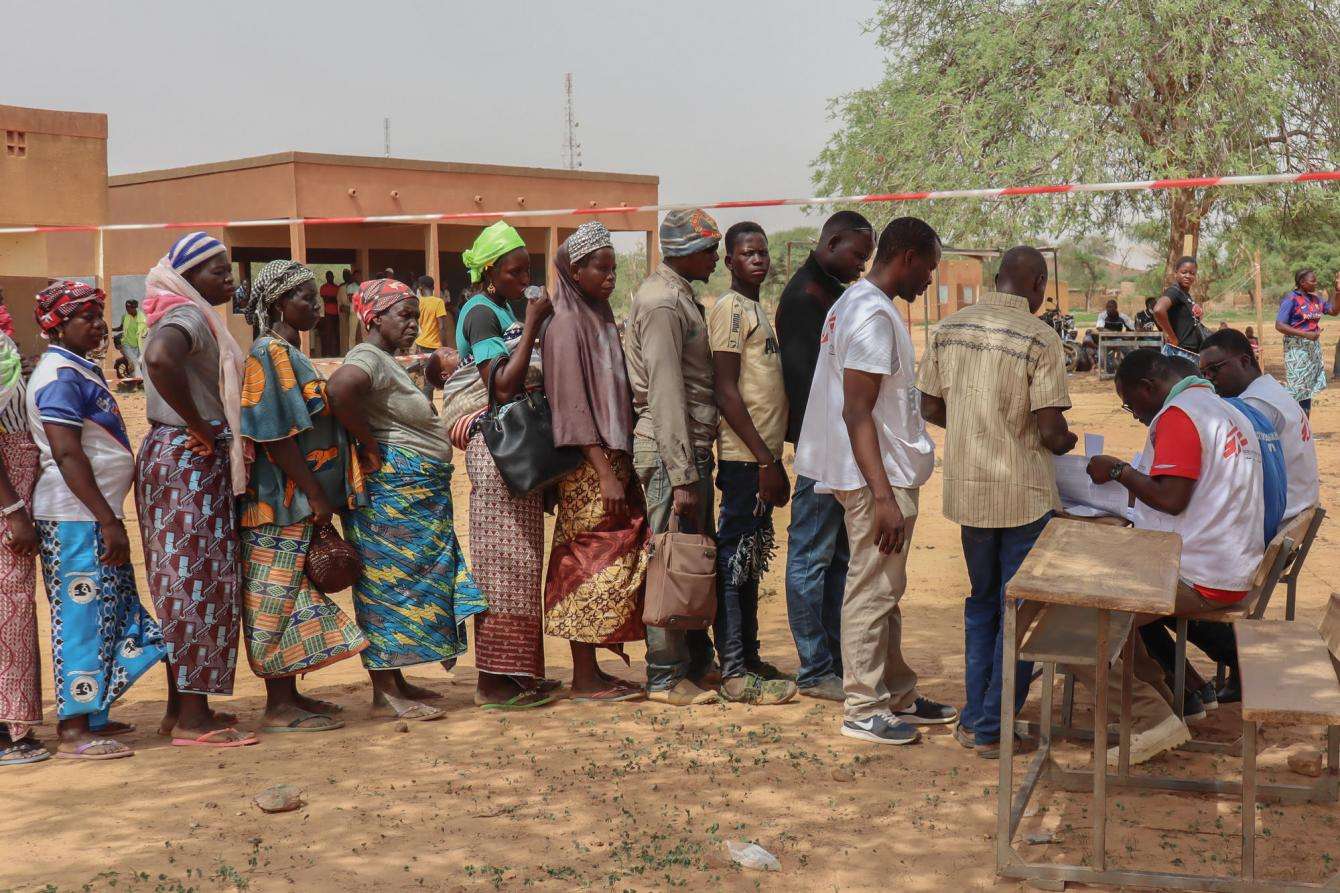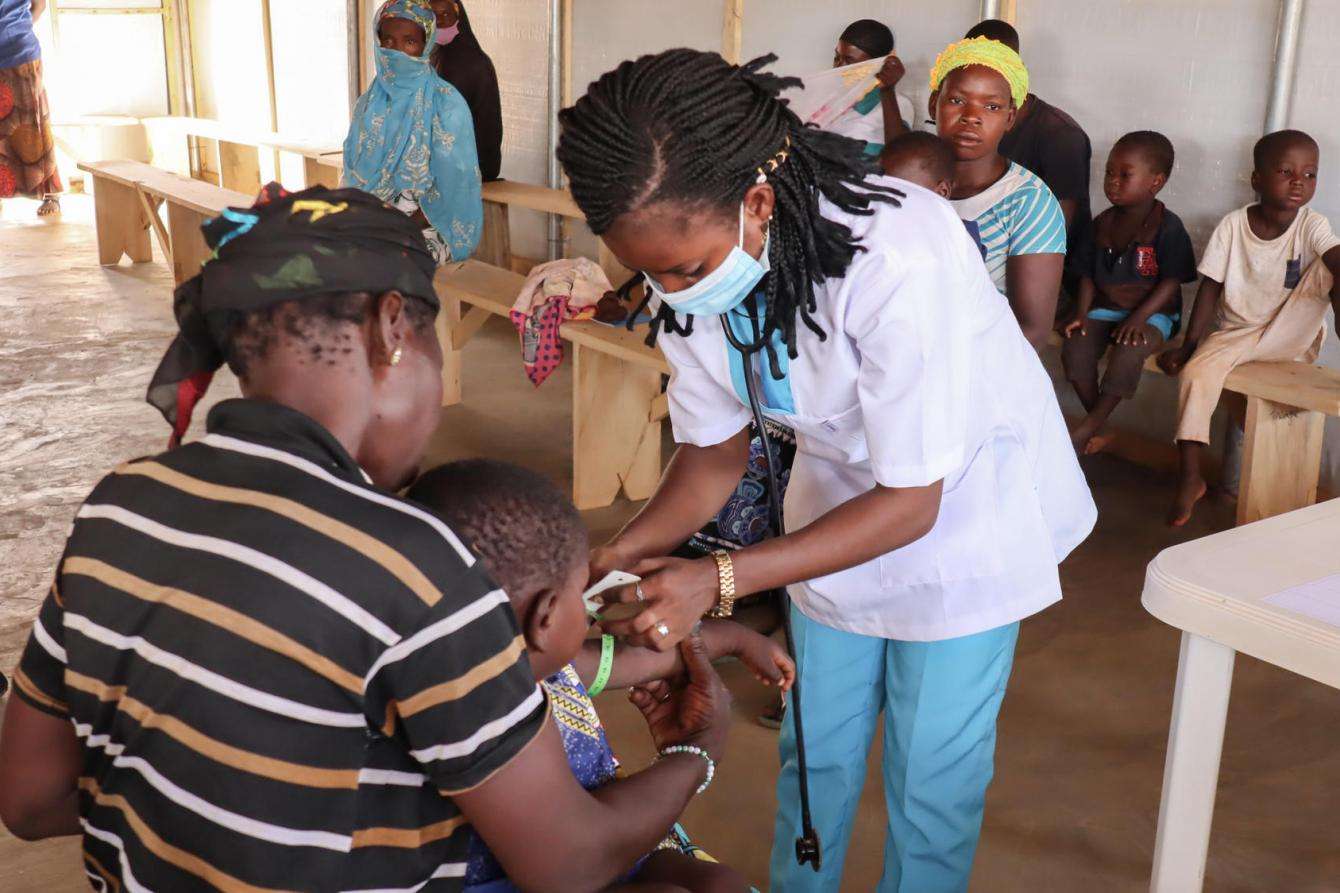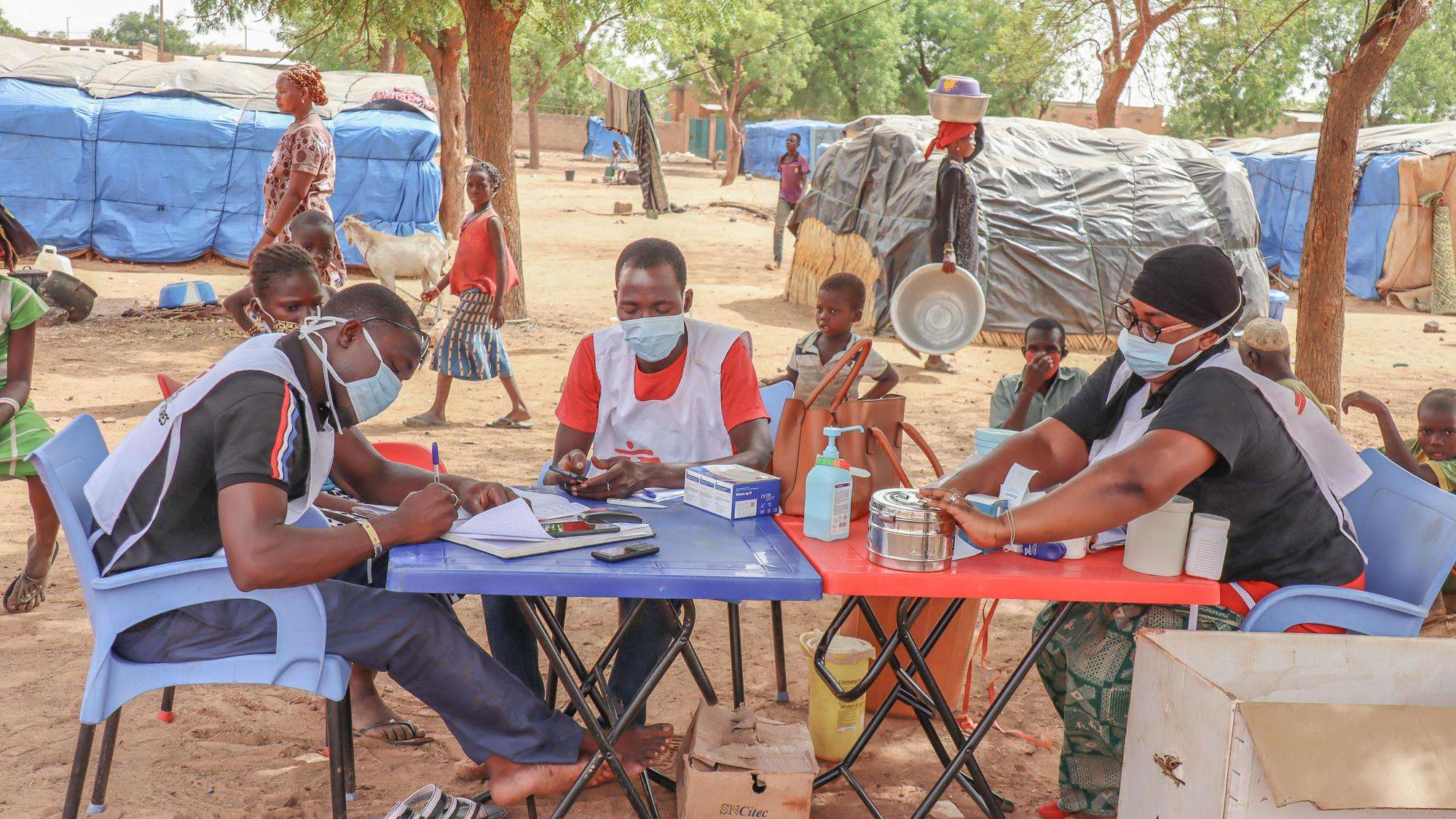The number of displaced people seeking safety in Burkina Faso’s Centre-North region has almost doubled in six months to 386,000 as a result of growing insecurity and violence in the region. Many have no option but to live in improvised shelters in remote areas, without basic services and exposed to the elements as the rainy season begins. To help meet the vast needs, Doctors Without Borders/Médecins Sans Frontières (MSF) medical teams are providing basic health services throughout the region and running mobile clinics to reach people in the remotest areas.
“[When the first rains hit in May,] the water flooded all the tents so we had to get up and stay standing up until the morning,” said Nabonswendé, who was displaced form his village and now lives in the town of Pissila, some 80 miles northeast of the capital Ougadougou. “We hope that if we can’t return to our homes, at least we can fix our tents so the water doesn’t come in, otherwise this rainy season is going to be very difficult.”
Nabonswendé has lived in the Pissila area for the past year but hopes to be able to return to his village, where living conditions are much better. “Even though a lot is being done to support us, going back to our home would be the best solution,” he said. “We are farmers and, when the rains come, our place should be in the fields so that we can provide for our families.”
Further north, in Pensa municipality, displaced people are also living in difficult conditions. “We’ve been living in the city hall building for 12 months now,” said Awa, who came from Wapassi. “When it rains at night we can’t sleep because water comes in from roof. Before we had our homes and all that we needed. Now we feel miserable.”
The makeshift shelters and other emergency accommodations where displaced people are living often cannot withstand the strong winds and heavy rains common at this time of year. And pools of stagnant rainwater raise the risk of waterborne diseases such as cholera and acute watery diarrhea, which are particularly dangerous for children.

When children get sick, many displaced parents can’t afford to bring them to a local doctor, having lost their livelihoods when they fled their homes. According to Nabonswendé, many people go into debt to get medical care. “When our children get sick it is necessary to take them to the hospital, even if we risk going into debt, because we don’t have money,” he says.
“It’s a relief that MSF provides health care free of charge,” says Nabonswendé. “Health is the most important thing.” MSF runs a health center in Pissila and sends mobile clinics to reach people in the surrounding areas.
“Not enough space for everyone”
Though various organizations are striving to address the short and medium-term needs of displaced people, the gaps in essential services are still considerable. And as conflict in Burkina Faso escalates, the growing numbers of displaced people is straining available resources and complicating life for host communities as well.
“We were already many when new people started arriving,” says a resident of the town of Bourzanga. “Finding enough clean water for everyone is a big challenge. Now, with the rains, the quality of water will deteriorate and it will bring diseases. Food, accommodation, and latrines are also a problem. We showed them where is safe to set up shelters—away from flood-prone areas—but there isn’t enough space for everyone.”
The most urgent needs are clean water, food, shelter, and health care. MSF teams have distributed hygiene kits, essential relief items, and clean drinking water. The most recent distribution took place in Silmangué, in the Centre-North, about 106 miles from Kaya. There we distributed essential household items—buckets, jerry cans, cups, and more—and shelter kits to more than 2,000 displaced families. But much more is needed, according to Hassan Maïyaki, MSF’s head of mission in Burkina Faso.

“To be able to guarantee the wellbeing and health of these people, they need better living conditions, including adequate shelters and a clean environment with functioning latrines, especially during the rainy season,” said Maïyaki.
Looming malaria and malnutrition crises
With such massive displacement, overcrowded living conditions and poor water and sanitation create an environment where diseases spread easily. The rainy season brings an increased incidence of malaria, as the mosquitoes that spread the disease breed in standing water. In 2019, malaria was the most common condition among our patients in the Centre-North region. This year is set to be no different, with 7,231 people already treated for malaria by MSF since January.
“More than 60 percent of the displaced people in the Centre-North region are children, who are the most vulnerable to diseases like malaria,” said Maïyaki. With malaria, early diagnosis and treatment are essential to reducing deaths. But medical care in the region is scarce, with at least 21 health centers closed and 38 working at minimum capacity as of late May. Instead, regional health authorities are focusing on prevention, eliminating the conditions that allow mosquitoes and other disease carriers to multiply. MSF teams are ready to support local authorities in case of a spike in malaria cases.
Another health hazard brought on by the rainy season is malnutrition, due to the seasonal hunger gap that occurs between harvests. From January to June 2020, MSF provided therapeutic feeding to 1,580 malnourished children. This number will likely increase as food becomes scarcer in the coming weeks.
At least 2.2 million people in Burkina Faso are in need of assistance, according to the United Nations, and more than 921,000 are currently displaced from their homes. Funds and human resources must be directed toward the improvement of living conditions for the most vulnerable, says Maïyaki. “The magnitude of the situation is such that a permanent global approach is needed if we are to guarantee assistance to these people.”
MSF started working in Burkina Faso in 1995 and currently provides medical assistance in the Sahel, Centre-North, North, and East regions. In 2019, MSF medical teams provided 112,611 consultations countrywide. We also run water trucking services to provide people with clean drinking water. Following the onset of the COVID-19 pandemic, MSF set up treatment centers in the cities of Ouagadougou, Bobo-Dioulasso, and Fada, in addition to supporting health facilities and running community engagement and awareness activities.




